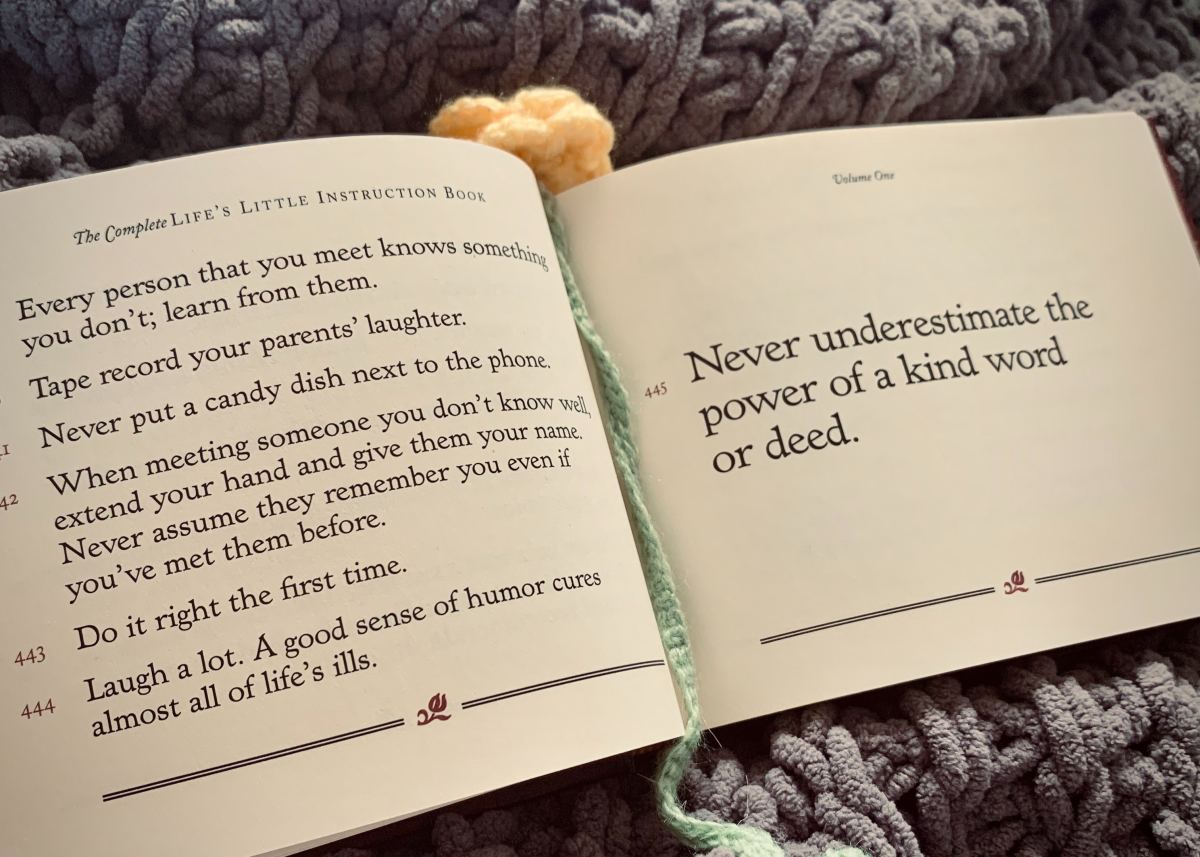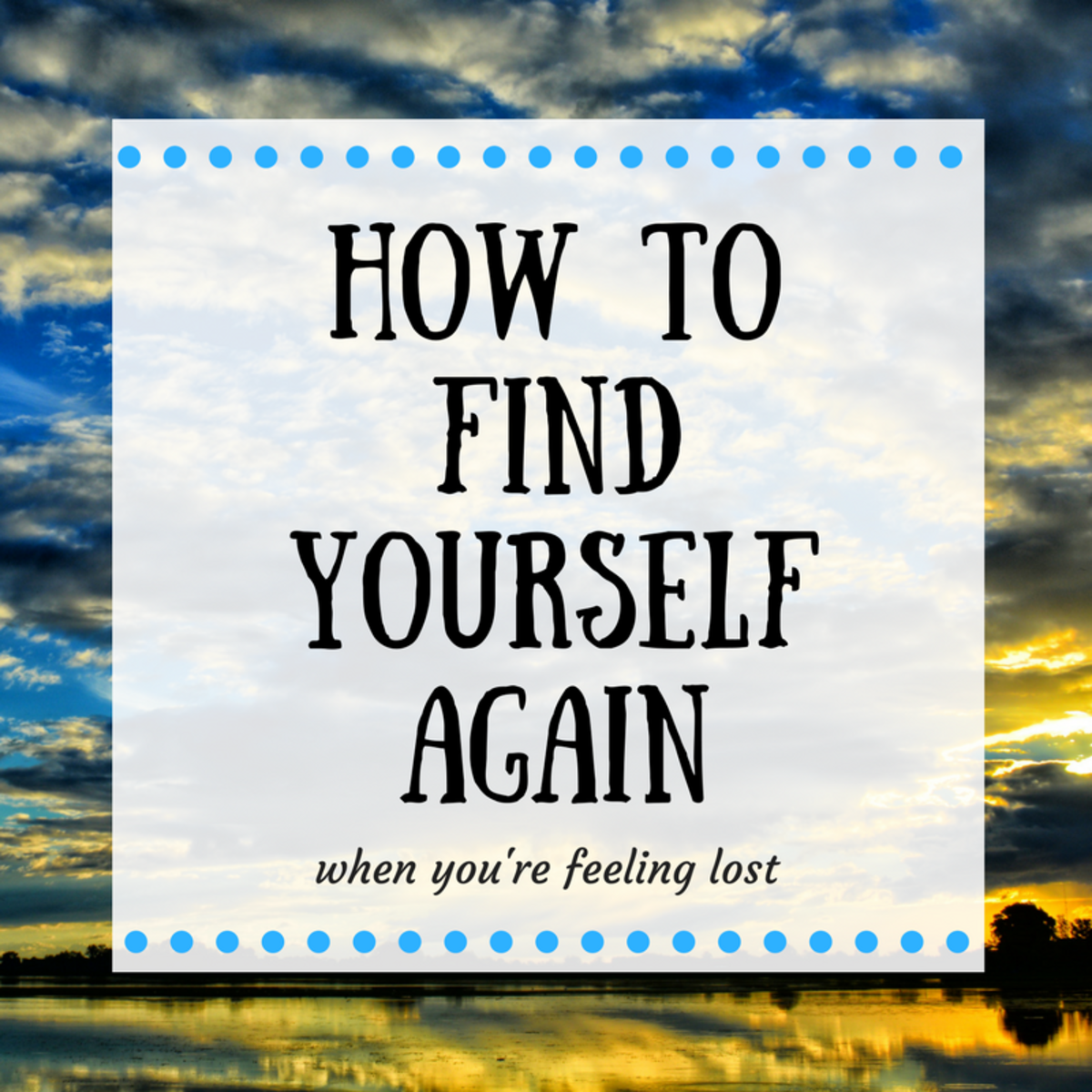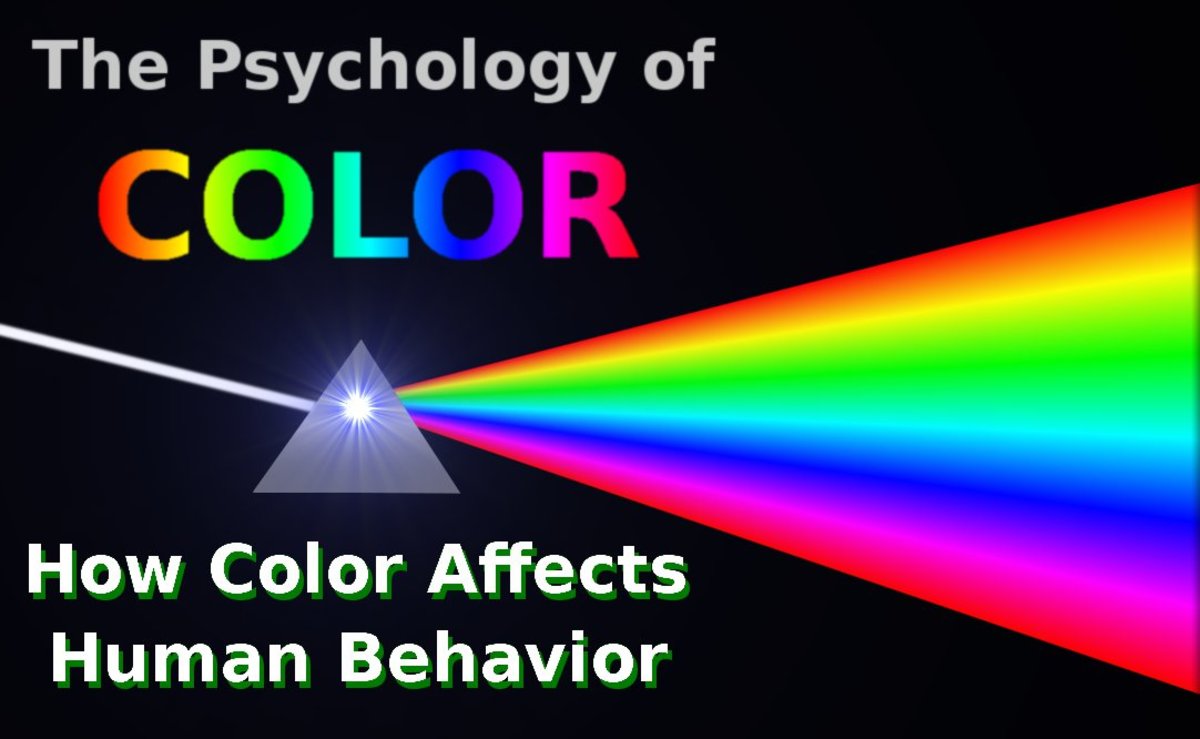Random Ramblings: Thoughts on Rationalization.
Negativity Feeds on Itself
Rationalization.
We can rationalize anything into being okay. Once we are aware of it, it’s a fascinating thing to sit back and watch. Everybody does it, to a point; but some people can make serious art out of it.
Example:
I need to visit family with whom I'd rather not spend time. I can get out of it. A million pretenses readily come to mind, all good, viable, reasonable excuses. They are so good that we find ourselves becoming angry and insulted when the family member works up the gumption to call us out on them. How dare they get mad at me for avoiding them! I mean, I'm not doing that at all; I'm busy!
My reasons are entirely realistic and acceptable. I'm coming home late from work, or I'm exhausted; I've had a hard day. The car doesn’t have enough gas in it. It's got a bad tire, and the brakes are acting iffy. The kids haven't been feeling well either. I need to cook. I've got company coming over. These reasons are… possible. I mean, they don't know if what I told them is true or not - I could get held up by something, anything... No, seriously, they have no right to get mad about it; they don’t know!

Example:
Like having an addiction. I'm not addicted; I can quit, any time I want to. I presently don’t want to. If I'm trying, does anyone have the right to fault me for slipping? I have loads of reasons why I can’t give that up right now. Life is so hard, and it's too stressful. I'm arguing with my best friend. I shut my finger in a door. A weird interaction at the supermarket has me embarrassed; no, mortified, and I need something to calm my nerves. Anything that happens that makes the heart beat a little faster can be the perfect reason why I must have something to help calm me down, just this one last time. I thought you were quitting, says a friend. Yes, but… Wait. Why should I have to explain anything to you? You don’t understand what it’s like, how stressful my life is. You don't walk in my shoes every day, so how can you possibly know?
In these examples, I can find myself getting angry and insulted, and justifiably so! I have good solid reasons for behaving the way I do in these situations.

Example:
Some days I feel too sick to leave the house. Depression, or one of those weird fatigue syndromes no one can seem to explain. They are real, though. They are painful, I am tired, and I don't have the energy to get up and go out and do anything. I look in the mirror, and that alone is enough to make me lay back down on the couch. While I slump there, my hips start to ache, and pain starts to travel down my leg. My eyes begin to hurt, and then begin to feel my pulse beating behind them. Here it comes; the headache. Now there is no point in trying to get up and do anything. Someone walks in and see me laying there. They suggest I get up and take the dog for a walk.
We find ourselves becoming angry and insulted when people insinuate we are lazy or that getting out of the house will do us some good. Why can people possibly say that? They don’t understand what I've had to endure. I have a million reasons why I can't leave the house, all honest, genuine and relevant... and they are. Bonafide, real, and acceptable. No one has any right to suggest anything to me, I've already tried it. No one has any right to question my reasons. They don’t know!

Example:
Procrastinating. We can find a million small projects that need doing before starting to work on that essay I need to write, or before doing the laundry or the dishes. Every one of them is vital; they are real and acceptable reasons why I wasn't able to finish something else.
At this point, I may find myself starting to get angry from reading these examples. Wait, whoa, hold up! Those are all serious issues! Addiction, fibromyalgia, migraines, arthritis, depression, and... wait what who do you... I'm not lying! I am too busy to stop and visit with people! People need to mind their own business, educate themselves and learn to understand; I have a family of my own and issues of my own that I need to deal with every single day! It's all real, and I'm so tired of people trying to tell me that it's not!

Yes, it is all real; people do understand that these long-term chronic issues are real. Some of them never go away, and some of them get worse over time. Every single one of these impediments is a real obstacle for us to contend with every single day, they are tedious and all-consuming aspects of our lives that are honest and acceptable reasons for why we feel overly exhausted and tired.
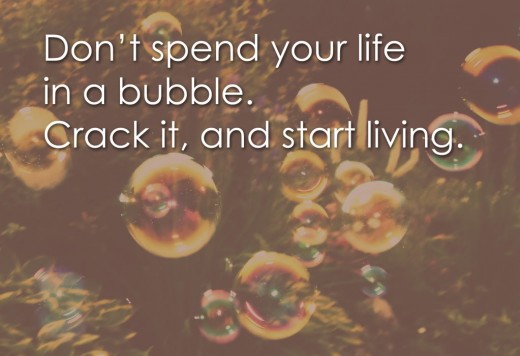
The absolute fact of the matter is, no one knows how bad we really feel. I know; and I get angry because of course, it is true, and I get tired of defending myself. People consistently don’t believe me. Isn’t that the reason why I get angry at them? Isn’t it?
Sabotaging your own life is easy. All you have to do is find enough excuses that fit so perfectly they become irrefutable.
What we have to admit to is, sometimes we use these excuses to get out of doing things we don't want to, and this turns into a habit. Then we have to wonder; is our self-righteous anger and indignation really directed at the other person, or at yourself? This question can be difficult to puzzle out, because the only person who can answer it is you, and - this is the part that will make you mad - you have become adept at lying to yourself. You have gone over the reasons in your head, over and over and over, and rationalized it into being okay. "Well, I really don't feel so bad today, but I have the right to take a break for no reason at all." That's true. We do have that right. How often do you talk yourself into not getting up off the couch though? Maybe it's even out of resentment that someone has asked you to move?
We have this amazing ability, we humans. We can rationalize anything into being okay. We tell the truth for the most part, but does it hurt to make excuses once in a while when they really don't apply? After all, nobody can contradict me; they are legitimate reasons. Using them eliminates me having to make a long explanation or argument for why I don't feel up to it. If people do argue, we find that pulling out the resentment and anger causes people to backpedal, apologize… and leave us alone. They can't argue with us, because THEY DON'T KNOW. Based on that, their arguments are invalid. Period, the end.
We discover we can use this "not knowing" as a cloak to wrap ourselves in - once in a while of course - and besides, we don't have any reason to feel guilty about it. We know what we say is more or less the absolute truth.

Example:
Here is a different kind of rationalization a lot of us use at work. “Treat me like an adult; I’m not a child!!” We say this with the same amount of heat and irritation as we do with the example above. I say this when I'm feeling belittled by people who are telling me how to do my job or who won't recommend me for a promotion. I'll say this when co-workers insinuate my conduct or behavior is inappropriate. It's a fundamental human right; all we want as human beings is for people to treat us as equals, to treat us like responsible human beings. Is that too much to ask?
Once again, I have to point out how good we are at lying to ourselves. "These people are jealous. They are just trying to hold me back. They are toxic - they don't care about me. They want the job for themselves." These thoughts might be accurate, but we can't use them to dismiss all interactions like this, especially if we've been having a lot of them. We need to be brutally honest with ourselves if we want to move into business roles that require a lot of responsibility. When someone confronts me, I take a step back and honestly think about it. Am I behaving in a manner that's unacceptable?
We have to admit that once we feel secure with our jobs, we often take liberties at work. We toy with the company rules, even more so if we think they are silly, out-dated or unnecessary. We test the boundaries, then look around to see if anything is going to happen. When nothing does, we become bolder; we push further, but still, receive no reaction. It could go something like this:
Things are slow, so I start using the computer for personal reasons at work. I stop doing my chores or start breaking my curfews at home. I call in sick more often or develop a habit of coming in late every day. Why do I do this? Well, because people see me; they know I'm breaking some rules, but nobody says a word. So it must be okay.
When I realize no one is going to comment, I relax, but then I start slacking more. No one says a word, so I continue taking these small opportunities that make the workday easier to bear. I start taking frequent smoke breaks; everyone does it. I take more time to eat lunch and begin doing personal projects at work. As I said, people have seen me do it; they often do it themselves. No one has told me to stop, so it must be okay, right?
The small liberties I take become perks of the job to me. It's okay to do because no one cares.
Then someone does tell me to stop. It's embarrassing; I feel threatened. My anger and resentment manifest. I inform my boss, my co-workers, my parents, "I'm doing my job. I don't need you to tell me what to do; I'm an adult!"
Adults don't need to be supervised or told what is right or wrong, so the truth is, I was being treated like an adult that whole time. My family and co-workers watched me slacking off for months, and said nothing about it.
Why didn't they say something earlier? That's confusing! If they don't say anything, then it must be okay, right? They should have said something when they first saw me do it.
They don't say a word until now though; why? It's a trick or a setup! No. It's because they have actively been treating me like the adult I say I am. They have been waiting for me, as an adult, to adjust my behavior on my own. Instead, I kept pushing to see how much more I can get away with. "Other people are doing it too!" Yes, it's true; other people are doing it. Pointing this out is a rationalization that what I'm doing is okay, but it's also a diversion, a final excuse to shift the attention away from me. It's not a good one. If other people are doing it, it's not a reflection of my behavior. I am free to choose how I behave.

"No one has ever complained about what I've been doing before, and no one should start now. I'm doing my work! They need to treat me as an adult." Did you see what I just said there? I'm saying that I'm an excellent employee; therefore I deserve to be allowed to have a few liberties. In other words, I consider myself better than all the other employees who do obey the rules, and I shouldn't have to conform to their standards. I deserve better treatment than everyone else.
When I take the time to look at it from that perspective, I realize I'm placing myself on the high-horse. I'm superior. Some people like to take that stance, but not me. No one is better or lesser than me; those are my core values. "Other people are doing it!" Yes, but this isn't about them, it's about me. I have no control over other people. The power I have resides in my willpower. My dominion is over me.
Becoming aware that we are rationalizing and stopping ourselves from lying to ourselves can be difficult. We need to build a set of checks and balances to apply against ourselves, to determine the positive and negative intentions of our self-sabotaging thoughts. Then, we need to have the willpower to weed them out.

In the above example, I have rationalized myself into believing that it’s okay to take liberties because no one is saying I can’t. Being able to do whatever I want is one of the privileges of being an adult, being allowed to do these things proves that I have reached that goal. If nothing is said to me, I might continue to take even more liberties – after all, if it's not okay, they'll tell me.
I take home some pens from work or start using the copy machine for personal reasons. Maybe I can snatch a couple of rolls of tape, or hey, why not that old monitor that's been lying around; no one's using it. It's becoming a doorstop. I work so hard all day, and it's stressful. I need to relax more, so I start drinking during lunch breaks and use drugs to counteract the effects (and to keep me sharp and alert, of course.) Still, no one says a word.
When the day arrives that they do say something, I'm shocked and feel belittled; it makes me feel like a grade school kid, being told not to take frequent bathroom breaks or to take no more than a half hour for lunch. It's outrageous! It's unfair and ridiculous; no one tells adults how to manage their time! And besides; what about everyone else who is doing it too?
To be treated as an adult, I must behave like an adult; to do that, I need to accept full responsibility for myself. Ironically, being an adult means you can be trusted to stay within the guidelines without supervision, so the idea that adults can do anything they want is entirely untrue. Even if I am responsibly earning good grades in school, I know I will still be expected to do my share of the work at home. If I am one of the best, most efficient workers, I know I still need to follow the company rules the same as everyone else, even if others aren't doing so. As an adult, this doesn't need explaining; it's part of being responsible. We understand the expectations and do what's right without ever having to be told. That is when we officially become adults.
The word "adult" is often not accurately defined. As an adult, we often believe that we can reward ourselves with special privileges for the hard work that we do, especially when we see others around us not doing their part. We rationalize that being an adult means we can all create our own rules. We can, in our own private lives; but being an adult means we can be flexible and adjust and earn the trust of our peers by working responsibly without supervision.

We all try to cut corners. Admit it. Every single one of us sees other people taking liberties, and every single one of us rationalizes the choices we make into being legitimate, even when we know… WE KNOW… they are not. The anger and indignation that manifests? It's not because we feel mistreated. It's because it's embarrassing to be called out. What about all the other people doing it too?
For me, this was the hard part. Why is it okay for other people to do it? It's not, but right now we are talking about you. Being an adult also requires us to focus. We must have the ability to accept that what we did what we did, own our mistakes, and correct them. Not make excuses.
Sometimes we have to delve deep to admit to ourselves that we are rationalizing. To do that, we have to acknowledge that the justifications we make aren't helping us; they are enabling us to avoid activities that would give us more strength, emotional balance, and self-esteem. Allowing ourselves to rationalize is okay once in a while, but if we allow ourselves to do it too much, it becomes self-defeating, and in the end, we start to believe our lies.
The rules of society can make that even more difficult. Today's standards require us to follow politically correct policies that don't allow people to speak freely about our behavior. Everyone wants to have the freedom to do whatever they want to do. What if, from the time we are children, no one ever offers to give us any direction? This lack of guidance is a real issue in today's world. Our parents are often too busy, and strangers look the other way because they have no right to approach a child. It seems we expect children to stay out of our way and that children will start to act like adults on our own. That's not what happens. Children push and test the barriers around them, and when they find there aren't any, it's frightening to them. Children will continue to explore how far they can go before somebody notices, and at some point, if they truly have n adult influences to guide them, their behavior can become a beacon screaming their need for parental attention. Kids are naturally curious and want to learn, want to participate, want to please others. Many kids feel discouraged and neglected. They are expected to stay quiet and out of the way, or sent outside to play for hours on their own. These kids will instinctively seek for a mentor, someone, anyone who will encourage them, and they will cling to those people, even if the influence is negative.

When you have lived under these conditions, and no one has offered you any guidance at all for a very long time, then by the time someone tries to implement basic social structures, it’s too late for it to be any help. What kind of reaction are you going to get from a person who has grown up doing everything for themselves, who has no structure to their day, who has been allowed to do anything they since they were children? The child grows to reach adulthood, and then, seemingly from out of the blue someone says, "Hey, you can't do that anymore." How are they going to react? You're going to get incredulous, self-righteous indignation and unreasoning anger; "Who are you to tell me what to do?!?"
This unreasoning anger seems out of context, but in truth, it comes from a deep visceral response most people aren’t even aware is residing within themselves. That anger contains a whole childhood of misunderstanding and demands the answer to one question: "Who are you to tell me what to do NOW, when no one cared at all until I was old enough to become interesting to you? Where were you, when I was desperately trying to get you to notice me?" Understandably, the door to rational dialog is slammed shut, and there is little hope that these people, who somehow navigated alone for so long, will be receptive to any outside help and will be unable to learn the social skills, usually acquired in childhood, that would have helped apply the brakes to stop their self-destruction.
If we realize this is what has happened to us, we can learn and we can change our lives for the better, but the obstacles are steep and challenging. By refusing guidance and help from outside of ourselves, we will have to be able to make these changes alone. We have to take a hard look at ourselves and admit to ourselves that some of the empowering things we learned that kept us strong growing up are not positive. We will have to surrender these things and move forward with more affability. We have to learn to trust, share, follow instructions, and be open to constructive change, and these are hard things to learn as an adult.
The development of children is vitally important. Humanity needs to nurturing from the time life begins; if we did that, today's attitudes might be significantly different. If we value and guide our children from the time they are small, they would be more receptive to learning and accepting help and guidance from others. What do we teach them by keeping them quiet, sticking them in front of monitors, controlling them, and punishing them, not when they need to redirection but for when they annoy us getting underfoot? What do they learn when they are told to go outside and play with others who are receiving the same sort of treatment?

We need to see this time of life as important, but instead, we sort of ignore it and wait for it to go away. Kids are a nuisance. How is that going to change, is we aren't actively guiding them? Teaching them? Exploring and doing experiments with them? In today's world, there are way too many who grow up believing that, as long as they fly under the radar and don't bother the big people, they can do anything they want and nobody is going to care. No one teaches them how to interact to be successful until they become "interesting", more adult, and at that point, the help we offer makes them usable, it's not information gained from someone who cares.
That matters.
In today's world, where the focus is on money, the goal is for success. We want to succeed; we must meet the deadline we must fill a standard quota we must put in the overtime to earn enormous profits; we must achieve our performance goals. To do that, we must develop a network and depend on other people. We can't begin to compete for that kind of success if we don't step outside our comfort zones.
No one wants to suffer the consequences that come from avoidance behavior. We don't want to alienate ourselves from friends and family. We don't want to be addicted to drugs. When did we decide that our life's plan was to lay on the couch all day and be depressed? Who gets excited and can't wait to stay at home and do nothing all day because of pain? No one wants to do that. It turns into a habit; a safe zone. Over time, it becomes easier to stay in than to become involved with life. There is less drama, less anxiety, less stress. We don't have to think, make decisions, make mistakes. We have our excuses, and they are irrefutable. No one can argue their legitimacy, so no one can make you do anything.
Not even you.

Once again, our reasons are honest ones. No one can say my illnesses and life challenges aren't real obstacles blocking an already difficult path. Those reasons are not the point of this discussion. It's when we use those reasons as feigned excuses and our reaction when someone challenges them. Are we getting so defensive because people question us, or are we getting so defensive because we know our reasons don't honestly apply?
Are we getting so defensive because someone is on the verge of taking away the key that allows us to stay tucked safely into our comfort zone?
When we make our excuses, we have to be brutally honest with ourselves. Sometimes, yes, we do need a break for no reason at all, but we shouldn't allow this to become a frequent habit. Are we staying impartial and honest, or are we taking the easy way out? Refusing to leave our comfort zone is a self-sabotaging compulsion that we are capable of breaking free from if we can force ourselves to be objective and brutally honest. One way to catch ourselves is to ask the question; why are we so angry when people challenge us? Is it really because we are offended that they don't believe us? Or are we afraid they are going to take away our backup security?
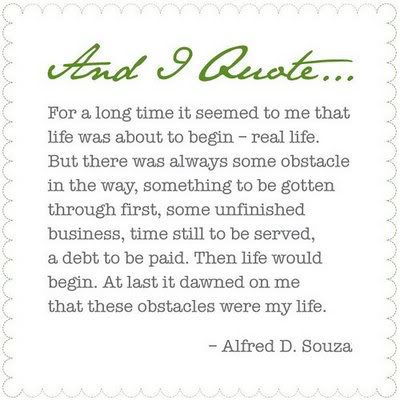
In the United States, being politically correct has become the norm. Being careful not to offend others can be both bad and good. It offers kindness and tolerance in the sense that it allows all people's the right to practice their fundamental freedoms, but it can also serve as a shield for negativity to hide behind. Many of us are confused and don't know how to react when we see a stranger doing something we feel is blatantly wrong. Some people, being polite, say nothing. Some people think it's none of their business; it's not their place, so they display no reaction. Others might feel some need to respond; they shrug, perhaps they shake their heads, but continue on their way.
The people of the United States have learned to repress their desire to intervene because we don't want to inhibit anyone else from practicing their fundamental freedoms. We are free to do anything we want. We have been conditioned to sit back and watch with growing concern, but we say nothing because it’s not the polite thing to do. Our freedoms – being allowed to be an individual - are a vital aspect of our society.
The United States is also a land of extremes, so if we go to the opposite end, we will find the reasons why we protect this freedom. On the opposite end, we have people who are not at all polite. They need to know all the details and be in complete control of the situation. They will badger and say negative, disheartening things to force us to conform. They do have faith and life experience; in truth, they care tremendously about people. If it's in their power, they will stop the tragedy they can easily foretell by the choices others are making. Intrusive people can’t concentrate on their own lives until the situations happening in the lives of family and friends are resolved; they can see their loved ones are headed for disaster even when they appear to be happy. These well-meaning, empathic people can see we aren't thinking straight; we don't know what's best for us. They become rude, meddlesome busybodies that invade our personal space, eavesdrop on our conversations and interfere in our private lives in general. They often assume information to fill in the blanks and have a misguided understanding of your situation. What they do know is the one method we must perform to resolve all our woes, and they will insist we must do it their way. They can be very tenacious. Some people believe their blatant interference is genuinely helpful. They will not leave well enough alone.
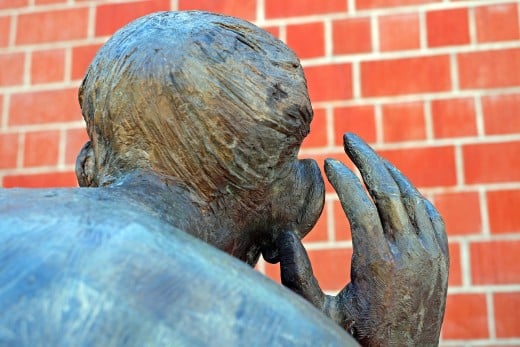
The United States is a country politically based on extremes. We must choose a side, either left or right; there is no middle ground. It makes no sense because balance should be our ultimate goal; it always has been.
We are supposed to help each other, but we aren’t supposed to force each other. We are all here for reasons of our own and must follow various paths to reach our goals. At the same time, if we allow no one else to guide and encourage us to performing our best, then that responsibility becomes ours alone. How many of us can make it through all the hard obstacles, without encouragement and guidance from others? If we remember what it is we are here for in the first place – to protect, tweak and enhance the balance and evolution of all life – we must also remember this includes tweaking and improving each other as well. We need exposure to different experiences; we need to share what we've learned with other individuals. Using this shared knowledge, we can make educated adjustments to help tweak and guide the course of our future.
Interfering busybodies do mean well, and in the spirit of tolerance, we should be more open and accepting towards receiving advice and concern, even if it is misplaced. Instead, we choose to react with negativity. We shouldn't be doing that. We need to remember what we are here to help each other, and we can share our concerns with them about their behaviors as well. If it seems annoying, a hassle, a big waste of time, we need to remember it is not. We are here to interact and learn. We are not here to get more sleep or binge watch TV - we are here to make changes and ensure that all life can look forward to a more inclusive and positive future.
In this troubled world, people do need our help, and as discussed earlier, the adverse actions they take are a way of screaming for someone to notice them. Today more than ever we need to contend with this issue. Today it's frowned upon to interfere in another person's life, so people who might have stepped in before will not now, for fear of reprisal. We act uncomfortable and pretend we don't see while they continue to deteriorate further and further, waiting, (or hoping) for someone care. No one does. If we do, they become indignant and angry and give us plausible reasons for their behavior. They rationalize, and we accept their excuses because there is no argument; we can't know how it is they feel, we haven't walked in their shoes. In the end, we have to wait for them to ask for help, but instead, they self-destruct, and we spend a lot of time trying to figure out why who or what is to blame for that.
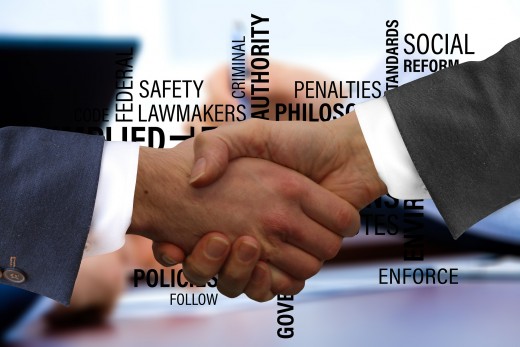
The system today makes it very confusing to ask for or offer help. We want to help people and can't; it's none of our business. When we need help ourselves and are too embarrassed to ask for it directly, no one is allowed to approach us. These rules exist because some people will offer unsolicited advice when they don't have our best interests at heart. The help they provide may be worthless and only a money making scam, or it may worsen the situation instead of helping. Some people prey on others when their minds are weak and disoriented. Sometimes people will try to force their belief systems on us or insist that we make lifestyle changes when we are happy as is.
In the midst of this, confused souls in desperate need of help wander about in confusion. We are shy and uncertain and will vehemently insist that we don't want help when we are indeed in desperate need of it. Then we feel confused, isolated and alone when people take us at our word and respect those boundaries. In states of distress when the need for help is strong, and our ability to make good decisions is low, we often need someone else who honestly has our best interests at heart to take the initiative for us. If anyone does, they have overstepped their boundaries. Do you see how confusing it is for everyone?
How do we know how to respond to each other in the world as it is today? Because the world caters to money, scamming is rampant. We have been changing the rules because of this so to protect people we are allowed to have less and less interaction with each other. Laws that keep humanity from caring for each other are taking the issue to the extreme. We are by nature social animals that need to interact and bond. This lack of caring for one another is one of the main issues that most needs our attention; we need to find a way to bring this back into balance.
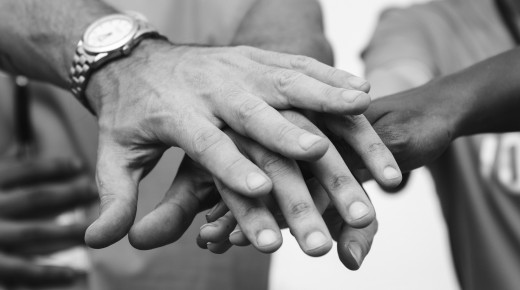
Right now we have to work within those boundaries. We cannot lay the blame for our behavior on someone else – not ever. We need to become aware of the self-sabotaging things we do, and we need to correct them ourselves. We should reach out and offer help to others, but we also need to accept help and be receptive to criticisms. No one, not one single person on this earth, has the power to help you if you don't let them in.
When people say nothing about the negative things we do, we need to be aware of the reasons and view this from a new perspective. By taking liberties, cutting corners, and bending the rules, we have to admit that we are taking advantage of our status as responsible adults. As adults, we are expected to supervise ourselves; we already know the expectations for professional behavior and time management in the workplace. If we honestly weren't aware before, we are now. We need to take the initiative and stop doing these behaviors on our own. If we can’t end it - and we can’t cope with addiction, illness, and depression all alone - then we need to admit it to ourselves and ask for help. We cannot wait for someone to intervene.
Human beings instinctively want to help; that is what we are here to do. Ask, and those who have been watching your struggles will reach out to you; they know now that you are ready to accept that help.
Ultimately, we must take responsibility for ourselves and see our rationalizations for what they are. We need to be brutally honest with ourselves and see through our rationalizations. To do this, we need to ask ourselves; who am I hurting/offending/bothering when I do this? We need to include ourselves in that answer. It all comes back around to the Golden Rule. Cause no harm. Do unto others, as we would have them do unto us.
As responsible adults we can look at our actions and know that cussing and horseplay are okay in one environment, but not in another. If we're wasting time at work, who are you hurting? Are you stopping other people from completing their work as well? Do you even care? Think hard about the answers you give yourself.

Who are you hurting?
In reality, you have control over one thing, and that thing is you. You have no control over other people, so what they are doing doesn't matter. We cannot compare our actions against theirs. If we need a scale, we can weigh today’s actions against our actions from yesterday and the day before. We can never compare ourselves to others as there will always be people who are better or worse than we are in every skill, area, and aspect of life. Our focus should be on improving ourselves; to do that, we can compare our current goals against our past performance. To achieve more than we did before we will need to take small steps, every day, and be persistent. If we put our minds to it, we can overcome our weak moments.
Why do I want to do this? How do I do this?
Overcoming rationalization will make us feel better about ourselves. Our self-esteem will increase, our pain and stress levels will drop, and our mood and energy levels will rise. We must stop comparing ourselves to others; we need to create a set of personal goals to guide your progress. It's scary because we have to push ourselves out of our comfort zone; rationalizing will allow us to duck back in. When we stop ourselves from doing this, over time, you will see; our attitude towards life will change for the better. So will our perspectives.
Every single one of us knows that we do things we shouldn’t be doing: what we don't realize is the effect it has on us; how we make ourselves feel when we do that. When we allow ourselves to slack off, it leaves harmful feelings behind that will start to weigh us down over time.
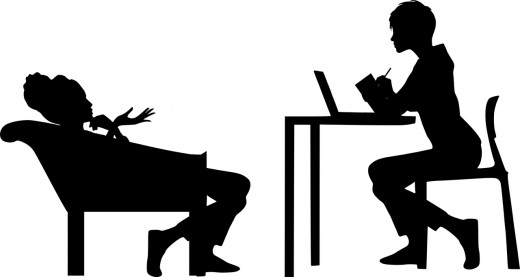
For instance, some people gossip, but we can choose not to join in. We don't need to feel all uppity and self-righteous about it. We aren't better people than the gossipers. They can choose to do what they want to do. We can choose not to.
But they're doing it...
It's okay. We don’t need to call them out on it. They are adults – they will figure it out.
If you pay attention, you will see a change yourself and others when you choose not to take part in mean-spirited activities. Ignore it instead of participating in it, and you will see the world around you from a more positive perspective. More important - you will start to notice positive physical changes in yourself.
When you have truly realized the value of this new-found feeling, you may feel magnanimous and decide you want to share it with others; this is when all the confusing information above comes into play. Any attempts to share this will likely meet with rejection and well as labeling you as the nosy busybody.
It's easy to feel resentful when others get away with taking liberties while we have chosen to "play the martyr." Watch it. That's negativity creeping in. Refocus. My regime of self-improvement isn’t about them; it’s about me. Put your back into it, concentrate hard on your changes. After a few weeks, these new behaviors will develop into habits. Getting up on time or taking half hour lunches will become normal and feel more comfortable to do. That's when you ask yourself; how do I feel?
I realized at this point that being responsible has serious perks. All the draining effort and energy it took to force myself to change my bad habits was no longer draining. I now had an increased sense of confidence and self-worth. By mastering my shortcomings - setting up slow and steady goals to improve my accountability, following a stricter work ethic, asking for and accepting help with the steps too difficult for me to climb alone - once these were in place, I was surprised to realize that rather than feeling tired and drained I actually felt more content, fulfilled, and happy. These positive feelings made me feel physically different as well; I was less aware of the pain and had more energy. Deep inside myself, the knowledge that I was behaving responsibly and taking on the task of changing my own life for the better was affecting me; mind, body, and soul. It started having positive impacts on every aspect of my life. I even seemed to catch fewer colds than before.

There was no point in resenting others for getting away with their infractions; not when I realized the benefits my own personal opinion of me was having. Now I understood what they meant when they say, "You need to love yourself." Caring about the actions I take has made me see myself as a better person.
Let other people do what they like; don't focus on their behavior or resent them. In fact, don't pay any attention to what they are doing at all. Dwelling on them will draw the negativity they are producing to you.
Someday we may all become receptive to giving and receiving help, but today is not that day. We have to believe that each of us will open our eyes and remember that ultimately, we have to hold ourselves accountable. I control me. Until we change our values as a country, we have to hope people realize this themselves, precisely as we did. We can be ready to help when they ask for it.

Yes; I know it's simplistic. Yes, I know there are exceptions to every rule. We can sit here and discuss all the reasons why this cannot work and will not work for you. We can always rationalize perfectly good reasons why everything that's said here is false. Turn off the computer, take another pill and lay back down on the couch. You can rationalize yourself into doing nothing. Is talking yourself out of trying going to help you change your life for the better?
Negativity LOVES rationalization.


